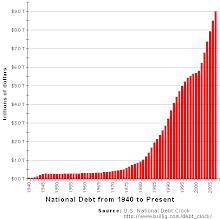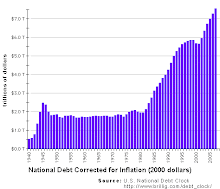November 13, 2005
'The Fairtax Book' and 'Flat Tax Revolution': 1040EZ — Really, Really EZ
By Joel Slemrod
Almost everyone agrees that our tax system could be a lot better - simpler, fairer and less of a drag on the economy. However, opinions about how to fix it vary widely. Earlier this month, a bipartisan reform panel created by President Bush presented two reform options that straddle the standard liberal and conservative positions. While the headlines focused on the reduction or elimination of popular breaks like the mortgage interest deduction, the report also suggested fundamental changes in how business and capital income are to be taxed.
These two new books, both coming from the right, suggest that merely reforming the current system is too timid. The correct policy medicine, the authors say, is to junk the income tax entirely and replace it with a consumption tax with a single tax rate for all Americans.
In "The FairTax Book," the syndicated radio host Neal Boortz and Representative John Linder, Republican of Georgia, claim that replacing all federal taxes - income, payroll and estate taxes - with a national sales tax would increase the average household's purchasing power by about 20 percent, end the need for the I.R.S. and turn April 15 into just another spring day. "Once the FairTax takes effect," they declare, "you'll be receiving 100 percent of every paycheck, with no withholding of federal income taxes, Social Security taxes or Medicare taxes - and you'll be paying just about the same price for T-shirts and other consumer goods and services that you were paying before the FairTax."
For a book that claims in its introduction to be "about honesty," this statement falls far short. No reputable economist of any political stripe would support it. The honest truth is that replacing the current tax system with any system that raises the same amount of revenue (as Boortz and Linder claim their plan does) may make us better off, but only by redirecting our resources away from dealing with complex filing requirements and improving our incentives to work, save and innovate - not by creating the kind of free-lunch miracle suggested here.
As for "saying goodbye" to the I.R.S., the authors' plan does so only by passing the responsibility for tax collection to the states. And what a responsibility it would be. In order to fully replace all federal taxes, the sales tax would probably have to be at least 40 percent - possibly even more than twice the 23 percent rate the authors claim, and certainly far higher than anything ever levied by any country. The enforcement problems would be different than those the I.R.S. now faces, but they would not necessarily be smaller. Even at an average rate of around 5 percent, state sales taxes are difficult to administer. Apparently the authors have not talked much to administrators who have to deal with, among other things, ineligible people declaring themselves to be businesses to qualify for the business exemption.
Oh, yes, Boortz and Linder's claim that their plan would make April 15 another ordinary day is true, because no individuals - just retail businesses - would have to file tax returns. Instead, every day is tax day as people pay their taxes on every trip to the grocery store, the car dealer or even the doctor, since the FairTax base extends to services that nearly all states exempt.
There's one more problem. Moving to a national sales tax would drastically shift the tax burden away from high-income families and toward low-income families. To remedy this, under the FairTax plan the government would send each taxpayer a monthly "prebate" based on family size, which would amount to $492 per month for a married couple with two children. But Boortz and Linder offer few details about the costs and complications of this vast system of transfers.
Steve Forbes is also pushing a tax plan, one he claims would "free America" from "the tyranny of the federal tax code." At first glance, his "flat tax" - which he has been pushing at least since his unsuccessful 1996 presidential campaign - looks like the current income tax, in that both businesses and individuals would file an annual return. But there are some big differences. Under the flat tax, there would be no deduction for mortgage interest, state and local taxes or charitable contributions. A 17 percent rate would apply to all taxable income, whether the taxpayer is Bill Gates, Steve Forbes or the mechanic who fixes their cars. Investment income would not be taxed at all under the individual tax, which by itself benefits predominantly higher-income taxpayers. The flat tax would indeed represent a significant simplification over the current system. (On the book's cover, Forbes is shown brandishing a postcard printed with "The Steve Forbes Flat Tax Form" - though, to be fair, the current 1040EZ would fit on the same card.) And cleaning up the tax base would, on balance, allow the economy to operate more efficiently and reduce the extent to which one's tax burden depended on arguably irrelevant factors such as whether one rented or owned a home. These benefits, however, have nothing to do with having a single tax rate. In fact, one of the architects of the flat tax, Robert E. Hall of Stanford University, now favors a plan, known as the X-Tax, that would apply a graduated rate structure to this simplified tax base.
Aspects of the flat tax deserve serious consideration. Unfortunately, Forbes's book does not provide it. Instead, like "The FairTax Book," it promises a free lunch. "Everyone" gets a tax cut under his plan. To guarantee that sound-bite feature, he would give people the choice of computing taxes under the flat tax or staying with the old tax system. That stunning concession guarantees that the nine million words of the current tax code and regulations would not go away after all but would be expanded by hundreds of thousands of new words laying out the flat tax rules and, inevitably, the new rules governing the consequences of going back and forth between the two systems. And then there's the hundreds of billions of dollars that Forbes's plan would add to the deficit. Forbes says that his plan will stimulate the economy so much that the apparent revenue shortfall doesn't materialize. If only this were true. Serious analyses suggest that a flat tax would be good for the economy, but would not produce the economic nirvana needed to close the huge revenue gap.
Tax reform deserves objective analysis of the sort these books do not provide. Fortunately, the president's tax reform panel has done a much better job. They considered the retail sales tax, but dismissed it. Both the proposals they outline simplify the tax base, though they retain a reduced mortgage interest break (in the form of a flat credit rather than an itemized deduction, which reduces the tilting of the benefits toward wealthier taxpayers). Both retain a graduated personal rate structure and try to maintain the current distribution of the tax burden. As the criticism following the panel report reminds us, truly revenue-neutral tax reform creates winners and losers, and the losers cry louder than the winners sing. To be sure, the Bush administration's tax cuts have in no way prepared Americans for fiscal sacrifice.
Contemplation of radical tax alternatives is exhilarating, and could help to avoid the kind of loophole-to-loophole combat that tax war veterans recall from 1986, the last time we made wholesale changes in the system. But much progress toward these goals - including eliminating the need for most Americans to file tax returns - can be made within the basic framework of the current system.
These books, to use the language on the jacket of "Flat Tax Revolution," are calls to join a crusade. We'd be better off just starting a conversation.
Joel Slemrod is a professor of economics at the Stephen M. Ross School of Business at the University of Michigan and the author, with Jon Bakija, of "Taxing Ourselves: A Citizen's Guide to the Debate Over Taxes."
Sunday, January 25, 2009
Book Reviews: 'The Fairtax Book' and 'Flat Tax Revolution'
The New York Times review of 'The Fairtax Book' and 'Flat Tax Revolution' says:
Subscribe to:
Post Comments (Atom)






Excellent book great look on things.
ReplyDelete